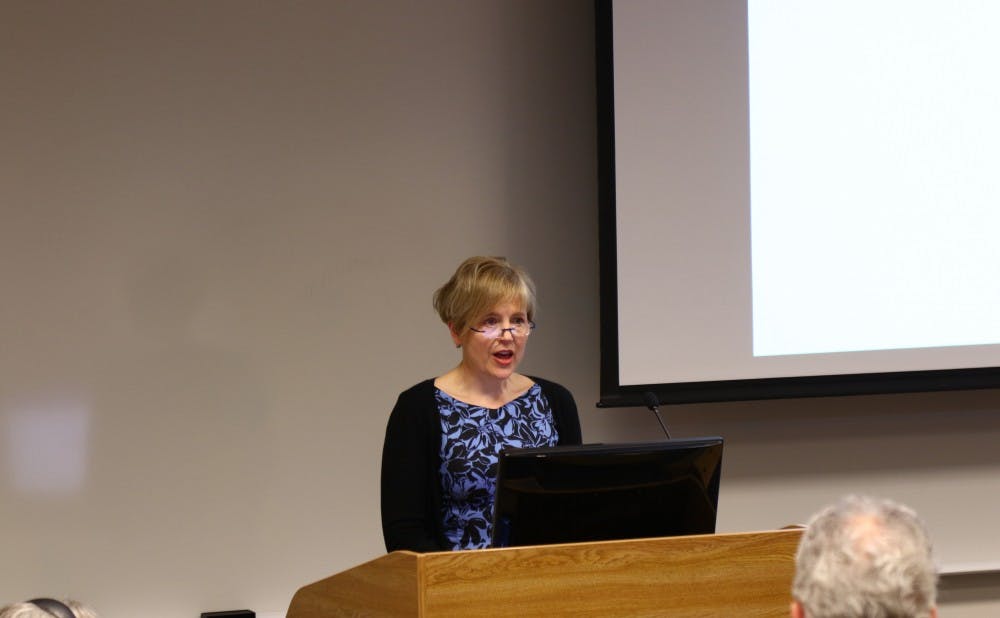When faculty members want to resolve working disputes or air complaints and concerns, the faculty ombudsman is there to help.
At the Academic Council's first meeting of the year on Thursday, Tom Metzloff, professor of law, who served his first year as faculty ombudsman last academic year, delivered the 2018 Ombuds Report and called to expand the number of ombudsmen.
In the past year, Metzloff said he received about 60 visits. Approximately half of the issues developed into extended ones, which were to be solved over the course of 90 days. Additionally, half of the 60 visitors came from the medical center.
“There’s work,” Metzloff said. “Overall, it’s been an interesting year on the ombuds front, and I appreciate the confidence that you all had in me to do it. I’ve learned a lot, but I still have a lot to learn about Duke and how to interact with all the folks here at Duke.”
Ombudspeople at Duke are not obligated to defend one interest over another and does not assign sanctions to individuals or determine guilt of parties.
The concerns Metzloff has addressed most frequently this year are related to harassment, discrimination, and bias. Other issues range from compensation and benefits to evaluative relationship issues, such as those between faculty and deans, peer and colleague relationship issues, career progression and development, health and safety and organizational improvements.
Just faculty members visit Metzloff, ranging from professors to academic deans. Ada Gregory, student ombudsperson and associate director at Kenan Institute for Ethics, is in charge of issues related to students.
Going forward, Metzloff suggested two improvements to the program.
First, he proposed the creation of a separate ombudsperson to represent the medical center because visitors from the medical branch and the university branch usually came to him for different needs. Metzloff also proposed adding another faculty ombudsman to compensate for the “unexpected” volume of visitors this year.
As a faculty ombudsman, Metzloff said he needs to be confidential, neutral and informal.
"One thing to know is our conversation is confidential," he said. "[But] it’s not absolute confidentiality—if I were [to] hear something that suggests imminent risk of danger to someone, I have an obligation to do something about it.... I also make the point that I am neutral.”
In other business
In executive session, the council considered honorary degrees for 2019 commencement.
Members also heard about revisions the School of Nursing has made to its criteria for promotion and tenure.
Chairman Don Taylor, professor in the Sanford School of Public Policy, also shared some items on the council's broader agenda for the year. Those include discussing the distribution of representation on the council in consideration of recent faculty demographic changes, a spring salary equity report and discussion of changes in the role of faculty in adjudicating sexual assault claims from students.
Get The Chronicle straight to your inbox
Sign up for our weekly newsletter. Cancel at any time.

